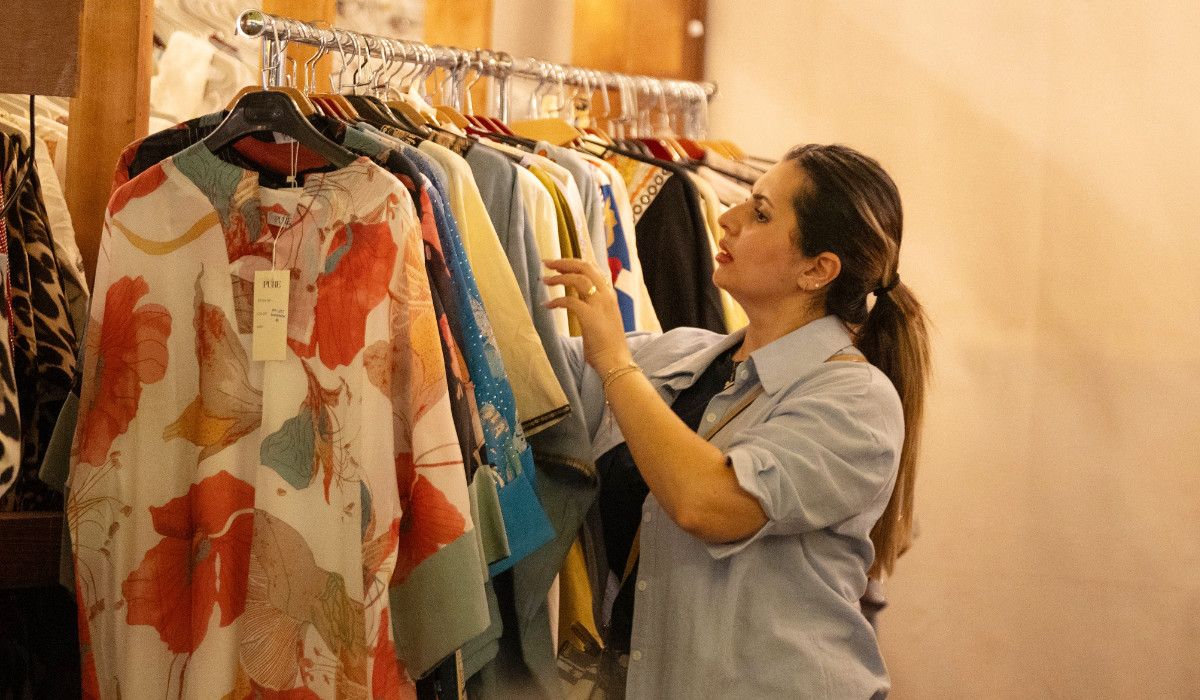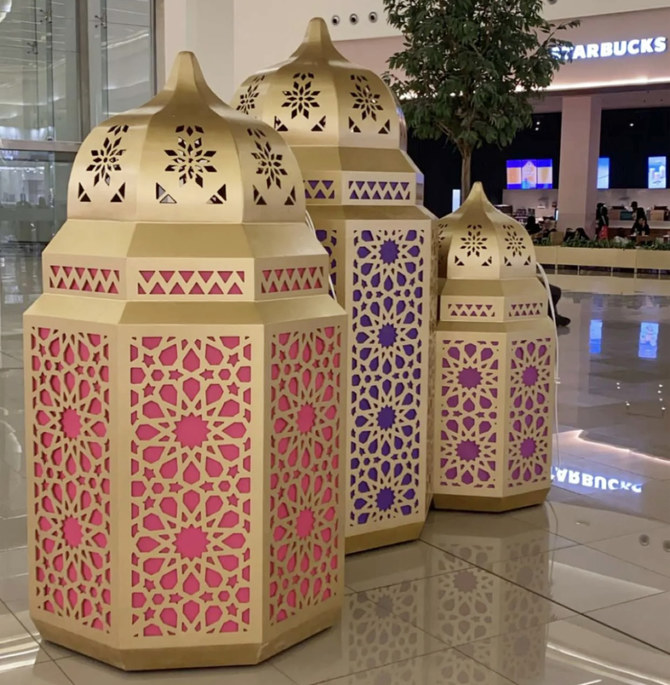JEDDAH: Each passing year sees Ramadan decorations in Jeddah’s public spaces become more elaborate and enchanting.
The coastal city’s malls, hotels and shops have undergone a remarkable transformation this year, creating an inviting experience for residents and visitors.
Many shops are adorned in special decorations featuring lanterns and golden crescents, setting a warm and comforting tone. Shoppers can encounter enticing deals, discounts, prizes and interactive competitions at every turn.

Ramadan celebrations in the historic Al-Balad district include market stalls, traditional games and cultural performances, providing a festive atmosphere for locals and visitors. (Ramadan Season)
From majestic crescent moons to twinkling fairy lights, and cozy majlises to fabrics with geometric prints called khayamiya, the city has been decked out for the holy month.
Ramadan celebrations in the historic Al-Balad district offer visitors an enchanting experience, in a celebration of the old town’s rich heritage.
Al-Balad has come alive with vibrant market stalls, shops and cultural performances, providing a festive atmosphere for families to discover traditions while indulging in food for iftar and sahoor.
FASTFACT
Restaurants throughout Jeddah are preparing special iftar menus and dining experiences for customers looking to break their fasts in a communal setting.
Special seating areas are available for people to play traditional games such as dominos, carrom and ballot, enhancing the festive mood. The historic district is also hosting storytelling sessions and Ramadan treasure hunts, as well as poetry readings.
Visitors can also unwind in outdoor seating areas while enjoying popular Ramadan TV shows.
The Red Sea Mall has been adorned with ambient lanterns, fairy lights and golden crescent moons for Ramadan, creating ideal spots for family photos.

Ramadan celebrations in the historic Al-Balad district include market stalls, traditional games and cultural performances, providing a festive atmosphere for locals and visitors. (Ramadan Season)
One shop owner in the mall told Arab News: “Ramadan holds a special place in our hearts as shop owners. We are crafting unique displays and promotions to meet our customers’ needs during this spiritual period.
“It’s not only the top month for sales, but also an opportunity for us to engage with our community and offer them a memorable shopping experience.”
Al-Hadaya Center in the Al-Safa district is illuminated by shimmering lights that evoke the spirit of the holy month. Mohammed Ali, a staff member at the center, said: “Ramadan signifies a time of generosity and contemplation, and we are thrilled to be part of our customers’ celebrations.

Ramadan celebrations in the historic Al-Balad district include market stalls, traditional games and cultural performances, providing a festive atmosphere for locals and visitors. (AN photo)
“We offer a unique range of Ramadan-themed products including plastic cups, cutlery, tablecloths, home decoration, and particularly the triangular streamers adorned with the distinctive red, white and blue designs.
“We look forward to welcoming shoppers seeking the perfect gifts or decorations to enhance their homes during this sacred month.”
As a part of the Ramadan festivities, the World of Saving store in the Sari district has set up a booth for the Albir Society to facilitate donations.

Ramadan celebrations in the historic Al-Balad district include market stalls, traditional games and cultural performances, providing a festive atmosphere for locals and visitors. (AN photo)
Meanwhile, Mall of Arabia, another prominent shopping destination in Jeddah, has set up a variety of activities and offerings. Shop owners at the mall have transformed their stores to welcome customers seeking special Ramadan gifts and decorations.
Hala Raees, a staff member at a household store, said: “Ramadan symbolizes a period of generosity and reflection, and we are excited to be involved in our customers’ festivities. Our store will showcase a unique selection of Ramadan-themed products, and as it is a month of giving and spreading joy, we look forward to welcoming shoppers in search of the perfect gifts or decorations to enhance their homes during this holy month.”
The city’s culinary scene is also embracing the essence of Ramadan. Restaurants throughout Jeddah are preparing special iftar menus and dining experiences for customers looking to break their fasts in a communal setting.
Salam Khan, the owner of a Pakistani restaurant, said: “Ramadan is a time for families and friends to unite, share meals and forge enduring memories. Our restaurant will serve a blend of traditional iftar dishes with Pakistani cuisine and special Ramadan beverages, creating a welcoming ambiance for our guests to savor their meals in a majlis-style setting.”
Abdel Darwesh, the owner of Al-Shami Restaurant, said: “We have introduced a variety of special Ramadan dishes and designed a stunning ambiance with hanging lights and mirrors for guests to enjoy the view.”







































